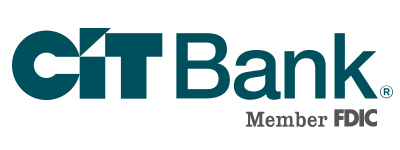State Employees’ Credit Union Review
The Bankrate promise
At Bankrate we strive to help you make smarter financial decisions. While we adhere to strict , this post may contain references to products from our partners. Here's an explanation for .
At a glance

Overview
With a full suite of deposit accounts, State Employees’ Credit Union is a good option for workers in North Carolina looking for affordable banking products with a local provider.
Highlights:
24/7 Customer Service Highly Rated App Low FeesHighlights:
CDs
Checking
Savings
MMA
Offers featured here have been sponsored which impacts how, where, and in what order the products appear. Not all offers are displayed on this page.
These are sponsored offers rated highly by us for competitive rates, fees, and minimums.

APY, or annual percentage yield, is the yearly return on a bank or investment account.
APY, or annual percentage yield, is the yearly return on a bank or investment account.
Bankrate Savings rating = 4.1/5
Bankrate scores are objectively determined by our editorial team. Our scoring formula weighs several factors consumers should consider when choosing financial products and services.

APY, or annual percentage yield, is the yearly return on a bank or investment account.
APY, or annual percentage yield, is the yearly return on a bank or investment account.
Bankrate Savings rating = 4.4/5
Bankrate scores are objectively determined by our editorial team. Our scoring formula weighs several factors consumers should consider when choosing financial products and services.
Offers featured here have been sponsored which impacts how, where, and in what order the products appear. Not all offers are displayed on this page.
Overall
State Employees’ Credit Union offers all of the standard deposit accounts, including share certificates, savings, checking and money market accounts. APYs on most of these products are not very competitive, but they charge minimal fees and have low minimum opening deposit requirements.
Though members don’t necessarily have to live in North Carolina, they do need to have a connection to the state through their employment. Plus, branches and fee-free ATMs are limited to North Carolina.
Pros
-
Accounts charge minimal fees.
-
There are low barriers to entry — most accounts have no or a low minimum opening deposit requirement.
-
APYs on share certificates are fairly competitive.
Cons
-
Higher rates for savings and money market accounts can be found elsewhere.
-
Checks and ACH transfers aren’t available for savings and money market accounts.
-
You need to have some connection to North Carolina through employment to be eligible for membership.
-
ATMs and branches are limited to North Carolina.
State Employees’ Credit Union banking products
State Employees’ Credit Union savings overview
Pros
-
The $25 minimum balance requirement is low.
-
There’s no monthly fee, other than a $1 fee if your balance is under $25 at the end of a statement cycle.
-
Funds can be used as collateral for loans.
Cons
-
Much higher rates on savings can be found elsewhere.
-
Members cannot write checks against or make ACH transfers from the account.
State Employees’ Credit Union CD overview
Pros
-
A wide range of share term certificates are offered.
-
APYs are competitive, especially for the 18- and 24-month terms.
-
The $250 minimum opening deposit requirement is low.
-
Earnings are distributed out monthly.
Cons
-
No specialty certificates are offered.
-
Terms of 30 months or more have lower APYs.
State Employees’ Credit Union money market overview
Pros
-
The APY offered is higher than the savings account.
-
There’s only a $2 monthly fee if your account balance falls below $250 — otherwise it’s free.
Cons
-
Checks and ACH transactions can’t be made against the account.
-
Higher APYs are available elsewhere.
State Employees’ Credit Union checking overview
Pros
-
There’s only a $1 monthly fee and no minimum balance requirement.
-
All balances earn dividends.
-
Members don’t incur any fees for the first two days that they overdraw the account in a year.
-
The $12 overdraft fee after the two free days is low.
Cons
-
Fee-free ATM access is limited to North Carolina.
-
Although the monthly service fee is low, it cannot be waived.
Bank fees
| Fee | Charged? |
|---|---|
| Overdraft fee | $12 (after first two per year) |
| Non-sufficient funds fee | $12 (after first two per year) |
| Account maintenance fees | $1 for checking |
| Out-of-network ATM fee | $0.75 |
| Excessive transaction fee | $0.20 per item after first 50 in a month |
Customer experience
Customer service. State Employees’ Credit Union branches are open Monday through Friday, 8:30 a.m. to 5:30 p.m. There’s also a Member Services phone line that’s available 24/7. Other ways to get in touch with the credit union are by sending an email, sending a secure message online or accessing self-services on the mobile app.
“Perhaps the biggest factor that’s kept me a loyal SECU member is the unsurpassed customer service,” said a Bankrate staff member with an SECU account. “Every representative I’ve ever spoken with over the phone, or in person, has been fast, personable and local. Other banks haven’t offered this caliber of customer service when I’ve needed help managing my finances and keeping my accounts secure.”
Digital experience. The credit union’s mobile app is highly rated on both the Apple store and Google Play. With the app, members can transfer money, make payments toward loans, deposit checks, set up recurring bill payments and more.
“The State Employees’ Credit Union mobile app prioritizes the user’s time and experience more than several other banking apps I’ve seen,” said a Bankrate staff member with an SECU account. “The app cleanly presents all the features and resources you may need on the go without hiding anything under layers of menus. All of the key information you need for all of your accounts is listed upfront on the homepage, including a button to check your FICO Score.”
Financial education. The credit union has several community outreach programs, including financial education programs that provide free financial management workshops for children and adults.
Bankrate staff insights
“I’ve used State Employees’ Credit Union since childhood,” said a Bankrate staff member who uses SECU personally. “Its low fees, accessible accounts and quality savings options have cemented it as my bank of choice even after I’ve branched out to other banks over the years. Although the checking and savings accounts don’t have the best interest rates, I’ve always kept a share certificate open for the first-class APYs.”
Disclosure: To enhance our product reviews, Bankrate employees often open accounts and provide feedback. They may have been compensated for their time and account maintenance, but this does not affect the integrity of their review.
Review methodology
We assign a score to each type of account and its features, weigh them carefully based on importance to account holders and determine an overall score. Read our full review methodology.














